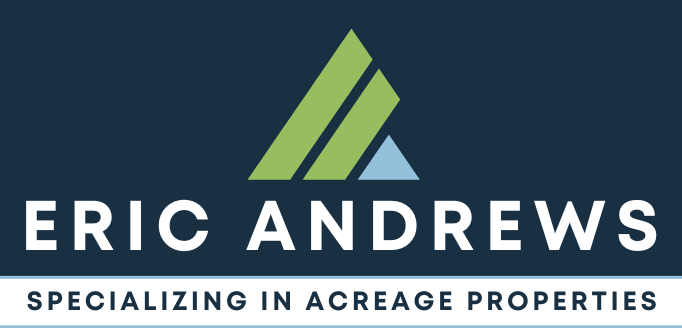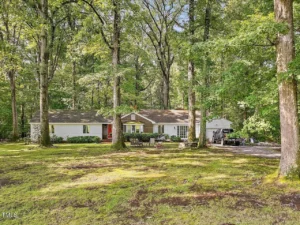Pittsboro Real Estate Agent Eric Andrews discusses the DO’s and DON’Ts of multiple offer situations. Important considerations: – If you tell a buyer there are no offers, they may come in with a low offer – If you tell a buyer there are offers, you can scare off potential offers – If you tell a buyer there are offers, you must tell all buyers there are offers – If a buyer hears there are 2 offers, both potential buyers could back out – This decision is not for real estate agents. Sellers must decide. – Newbie buyers agents may misunderstand that they do not necessarily have a right to know if there are existing offers.
Speaker 1: What are the dos and don’ts of multiple offer situations?
Speaker 2: Because of how hot the market is right now, we are getting into a lot of multiple offer situations. You can’t blame the other agents for asking, do you have any other offers on the table? They’re allowed to ask. It’s not a material fact for you to answer and in fact, you could get in trouble unless you have seller permission to disclose that you actually can’t or shouldn’t tell the other agent whether or not there’s multiple offer situations.
What’s the harm, what’s the benefit? Well, if you tell a particular buyers’ agent that there aren’t any other offers, well, they might come in lower. If you tell them that there are multiple offers, the buyer’s like, “I’ve already been beat on three properties. I don’t feel like offering.” You might have three really crappy offers on the property and this person might have made a good offer, but now they’re not going to make an offer because they don’t want to be in a competitive bid situation. So you have potentially eliminated the best.
You have to treat everybody equally. So if you tell one party it’s a multiple offer situation, you have to tell everybody that it’s a multiple offer situation. It’s very, very rare, but we have had situations where we’ve told the two potential buyers that it’s a multiple offer situation and they go, “Ah,” and they both back out. They’re allowed to do that. They rescind their offers. So you went thinking that you’re all big and bad and you’re going to get these two people to bid against each other, but maybe they decide that they don’t want to do it.
Ultimately what you as the listing agent have to know and realize is, it is not your decision. It is your seller’s decision. So your job is to advise. Tell them the pros and the cons and the seller has to make the decision. I think one of the most interesting things is a lot of buyers’ agents tell me it’s a material fact. It is not a material fact and they’re like, “You have to tell me if it’s a multiple offer situation.” No I don’t have to tell you it’s a multiple offer situation.
Now there are plenty of times where I’ve had seller permission and I’ve disclosed that it’s a multiple offer situation. The times that I would do that is last week I had a house in Durham and we had three offers come at the same time. So it was a multiple offer situation. I was actually one of them and not me personally, but a dual agency situation. The other agent came in really, really, really clean offer, not full price but they signed an as is contingency and they signed a contingency that if it didn’t appraise they would make up the deficiency with their cash. So not full price, but really strong.
Well, we had another one that was full price, but it had to appraise and it was an older house so we might have gotten beat up with repairs too. So there was about $15,000 difference between the two offers and a lot of agents will say give me your highest and best. I don’t like using that phraseology because highest and best is not necessarily the best. Here we had a clear example where the best wasn’t the highest.
The other situation is there was a broker in this county that I really, really respect and we were in a multiple offer situation and he made an offer and, gosh, we had multiple offers on this property. The seller was fine with full price. Well, we had one that came in way, way over full price and a ton of due diligence money. I had seller permission to tell everybody it was a multiple offer and they all knew it and this whopper of an offer came in and my seller said, “Fine, I’ll take it.” Okay. Well that other broker got really upset with me that I didn’t go back to him and allow him and his clients to match it or beat it.
Now, this is a really, really good broker that I respect, but he had a difference of an opinion from me. First of all, my seller was very, very happy with that other offer and didn’t want to mess anything up and that was their right. But the other thing too is we get into an ethical situation of whether or not I’m fishing. I’m fishing. So if I say, “Well, it’s 215 and I got 235, or I got 235 over here, do you think you can beat 235? I’ve got 235.” It sounds like an auction situation and I don’t think that is the healthiest thing to do.
I don’t think we’re treating everyone fairly. He was like, “Eric, we would’ve matched or beat that offer. So you didn’t do the best for your seller.” But I did do what my seller wanted. So I don’t know. Multiple offers can get a lot of people’s feelings hurt. The main thing is that you have to, as a listing broker, you have to treat everybody the same and the other thing people need to realize is you’re allowed to ask, but it is not a material fact for me to disclose whether or not we’re in a multiple offer.
Speaker 1: Having been in a few multiple offer situations, I’ve never had the opportunity to find out the price somebody else has offered and have a chance to go back and beat it. Does that-
Speaker 2: Yeah.
Speaker 1: Can I call you up and say, “How much is your best offer on this property?”
Speaker 2: Well, so that brings up an excellent point, maybe a whole different topic for the YouTubes, but we have a lot of people that will do escalation clause addendums. So what this escalation clause addendum says is no matter what offer you get, I’m adding 500 to it automatically. Let’s just say for the sake of the argument, the house is 225. If you could find a house for 225 now, and you say, “Len, I’m going to go up to 235. I’m going to beat any offer that comes in by $500, unless it’s over 235.”
So again, what a slippery slope of ethics or whatever. Yeah Len, I got one for 228, you in for 228,500? I mean, sure. I don’t think that’s the way real estate should be done. I think we need to make informed decisions and you come in with your best offer. One of the things that I tell my buyers is they say, “Eric, the house is 400. I want you to come in at 405.” I’m like, “Okay, if you come in at 405, would you be fine if someone came in at 406 or would you be really mad?” “I’d be really mad if I only got beat by a thousand dollars.” I’m like, “Okay, well, this is the way you have to think.” You have to think what is… You can’t even imagine that there’s other competition out there. What is this property worth to you? If somebody else beats you by a thousand bucks, it doesn’t matter.
The other thing that I’m seeing a lot of right now, and this is an indicator that I’m dealing with a very intelligent seasoned agent. Again, let’s say the house is $400,000 and you come in at 415. Okay. That’s great and everything but what if you came in at $415,799? What if you have two offers at 415? It’s a very even increment. But when you come in, you’re like, ah, this one’s better. For 200 bucks or whatever, you can come up with some crazy number that for whatever reason beats your competition. That’s the way you need to be thinking. When I tell agents it’s a multiple offer situation and I see that broker submit an offer with some crazy number, I know I’m dealing with an above average agent.




